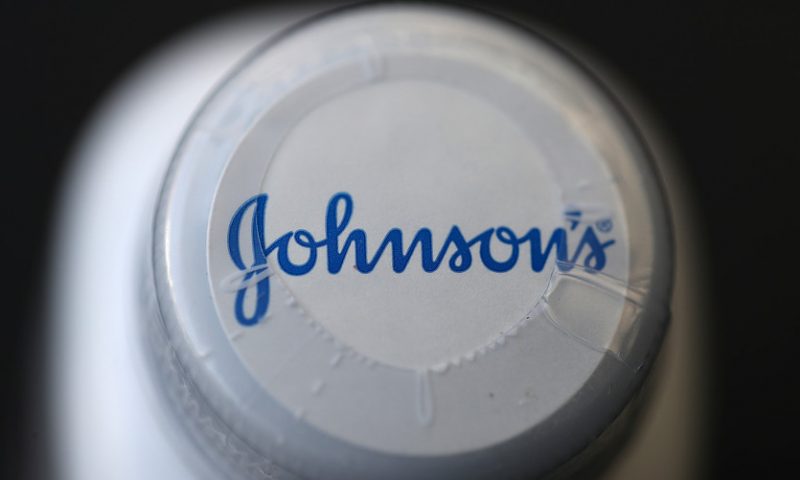Shares were down 1.4% Tuesday afternoon
Shares of Johnson & Johnson JNJ, -1.64% fell 1.4% Tuesday afternoon, despite the company reporting second-quarter results that soundly beat Wall Street expectations.
Second-quarter revenue fell to $20.562 billion from $20.830 billion in the year-earlier quarter, but beat the FactSet consensus of $20.293 billion. Profit JNJ, -1.64% for the latest quarter rose 42% to $5.607 billion, or $2.08 per share, from $3.954 billion, or $1.45 per share, a year ago, lifted by a pretax gain of $2 billion in the quarter from the sale of J&J’s JNJ, -1.64% Advanced Sterilization Products business to Fortive Corp. FTV, +0.82%
Adjusted EPS was $2.58 per share, topping analysts’ expectation of EPS of $2.46 per share. The company also boosted its 2019 sales outlook to $80.8 billion to $81.6 billion from $80.4 billion to $81.2 billion.
However, the strong second quarter wasn’t enough to keep the stock from falling in intraday trade.
“Investors [are] looking past the EPS print broadly as concerns over the opioid and talc litigation continue,” Jefferies health-care sector specialist Jared Holz told MarketWatch in an email. “The defensive characteristics that usually come with owning JNJ are not as apparent near term.”
Essentially, J&J’s legal issues are overshadowing its positive earnings results.
Sales from the company’s consumer business rose to $3.544 billion from $3.504 billion a year ago, while the company’s pharmaceuticals segment brought in $10.529 billion, up from $10.354 billion a year ago. Sales from the medical devices unit fell to $6.489 billion from $6.972 billion a year ago.
This comes as J&J goes to battle against the state of Oklahoma over its alleged role in contributing to the opioid crisis there. The state filed suit against the company, saying its aggressive marketing practices contributed to the state’s widespread problem with opioid addiction and overdose. J&J’s main opioid products are the fentanyl patch Duragesic and Nucynta, a tapentadol pill it sold in 2015.
J&J has pushed back against accusations that it down-played addiction risk when marketing its opioid drugs. Closing arguments for the trial took place on Monday. The litigation could potentially cost J&J up to $17.5 billion dollars — the cost of a 30-year abatement plan the state presented to address the opioid problem.
The health-products giant, which makes a variety of health products, from mouthwash to cancer treatments like Zytiga, also faces thousands of lawsuits regarding the safety of its talc-based baby powder. Last year, a jury awarded $4.7 billion in damages to 22 women and their families who blamed their cases of ovarian cancer on asbestos in the company’s talc products, though the company is appealing the verdicts. In May, the company was ordered to pay $325 million to a woman who claimed its talc powder contributed to her diagnosis of mesothelioma, a rare, asbestos-linked cancer. And shares took a hit on Friday after Bloomberg reported that the U.S. Department was pursuing a criminal investigation into whether the company lied about the possible cancer risks of its talcum powder.
Shares of J&J have gained 3% so far this year, while the Dow Jones Industrial Average DJIA, -0.09% has gained 17.3%. The S&P 500 SPX, -0.34% has gained 19.8%.

